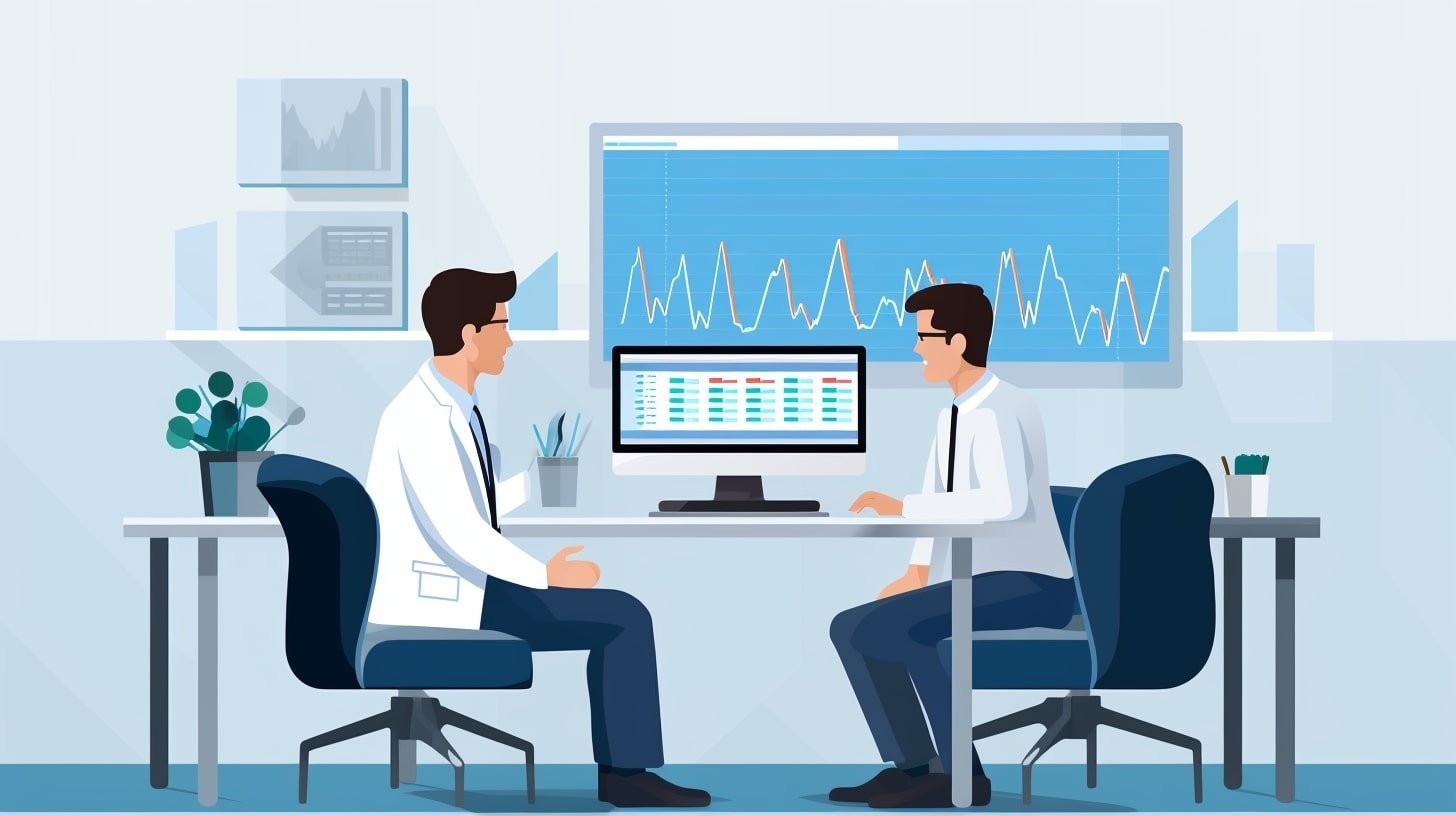Imagine this scenario: Your watch monitors your vitals, whispers health advice in your ear, and automatically adjusts your medication based on real-time data. Sounds like science fiction, right? Not anymore. In 2024, the boundaries between cutting-edge tech and everyday healthcare are blurring faster than ever. From AI-powered robots performing surgery to virtual reality training for doctors, technology is poised to redefine the way we experience health and wellness – for both providers and patients.
Just consider these mind-boggling stats:
By 2025, the global healthcare IT market is expected to reach a staggering $815 billion . That’s more than the GDP of Switzerland!
Over 207 billion devices will be connected to the internet by the end of this year, many of them tracking our health and feeding data into powerful AI algorithms.
Surgical robots are already assisting in over 800,000 procedures annually , and their capabilities are only getting more sophisticated.
It’s safe to say that the convergence of healthcare and technology has already transcended boundaries, revolutionising medical care at its very core. With no sign of a slowdown in innovation, here are 5 technology trends that we should keep an eye on in 2024.
1. Generative AI in Action
Forget clunky chatbots. AI-based assistants will analyse your data, personalise treatment plans, and even generate custom medical scans on the fly – paving the way for proactive, precise healthcare. For providers – say goodbye to tedious administrative tasks!
2. Wearables and the Ǫuantified Self
We’ve already established that your wristwatch is no longer just a timepiece. Smart wearables seamlessly monitor vitals, predict health risks, and even adjust medication based on real-time data, empowering you to take control of your well-being.
3. Telemedicine 2.0: Beyond Video Calls
Imagine immersive virtual consultations with hologram doctors and AI-powered diagnostic tools. Telemedicine 2.0 transcends location barriers, making specialised care accessible even in remote areas.
4. 3D Printing Revolutionises the Body
From printing personalised prosthetics to crafting biocompatible organs for transplant, 3D printing technology is pushing the boundaries of medicine, offering hope for those with complex medical needs.
5. The Rise of Digital Twins
Your virtual avatar isn’t just for gaming anymore. Your digital twin mirrors your health data, allowing doctors to test treatment options in a simulated environment, optimising personalised care and minimising risks.
These trends represent just the tip of the iceberg. There are countless more innovations taking place in real time, catering to everything from mental health support to AI-driven clinical trials and drug discovery.
There is a strong belief in the immense potential of voice-based AI technology. After all, speech is our most easy and intuitive form of communication. By leveraging speech-to-text, machine learning, natural language processing, and their related technologies – we can facilitate greater interoperability among healthcare systems and devices, as well as seamless data recording and exchange. This can drastically improve healthcare quality, coordination, and continuity.
Especially in India, where the patient-to-doctor ratio is an unfortunate 1700:1, and 70 per cent of all healthcare infrastructure is in metropolitan cities (catering to just 30 per cent of the population), voice-based AI technology can also provide unparalleled efficiency, cost, and reach benefits. Moreover, the development and use of Voice Biomarkers for the early detection of diseases are extremely exciting. Leveraging over 2500 biomarkers present in the sub-language elements of the human voice alone, we will soon be able to identify neurological ailments such as Alzheimer’s, mental health diseases such as Depression, and pulmonary diseases such as COVID-19, just by hearing a patient speak!
The future of healthcare is no longer a hazy vision, it’s rushing towards us like a data-driven tsunami. While ethical considerations and equitable access remain crucial challenges, the sheer potential of these tech trends is undeniable. So, get ready to witness the dawn of a new era – where healthcare is personalised, proactive, and accessible to all.
The author is Co-Founder & CEO, Augnito. Views expressed in the above piece are personal and solely that of the author. They do not necessarily reflect Firstpost’s views.
Discover more about Augnito:
Augnito is an intuitive and advanced Voice-AI solution innovator, revolutionizing clinical documentation in the global healthcare market. Their proprietary AI-based clinical speech recognition, natural language understanding (NLU) & generative AI technologies enable ergonomic data entry with 99% accuracy, anywhere, from any device. Augnito helps streamline clinical workflows, makes healthcare intelligence securely accessible, and ensures that physicians have more time to concentrate on their primary concern: patient care. Their solutions are currently in use at more than 375 hospitals, across more than 25 countries.

